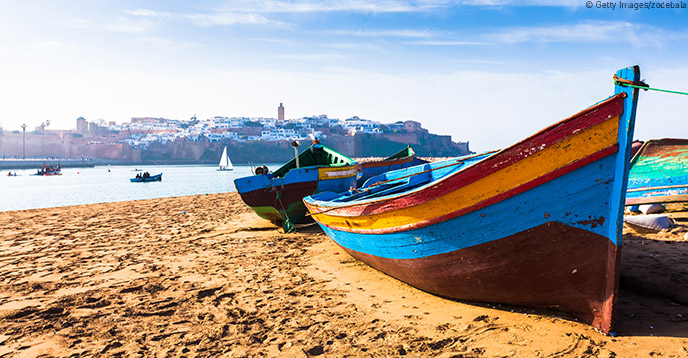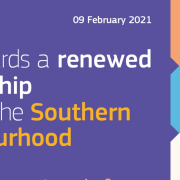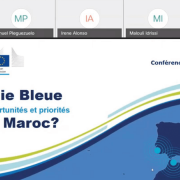Sustainability of marine resources and preservation of biodiversity: Morocco on the path to a Blue Economy
This article was first published on MSP Global 2030 website.

Thirty Moroccan representatives gathered in Rabat (Morocco) on 27-28 November 2019 for the first MSPglobal national training course in the country, where they gained new knowledge, shared experience and considered next steps for Marine Spatial Planning (MSP) and the Sustainable Blue Economy.
This first inter-institutional meeting allowed stakeholders ranging from government agencies, law enforcement, academia and research to sit around the table to discuss coordination and process for MSP and the Sustainable Blue Economy.
Important questions were raised, such as the main drivers of implementation of MSP in the country, the expected social, economic and ecological benefits, as well as the obstacles/constraints for a correct MSP implementation: data, mapping and institutional coordination on national and international legislation.
Nevertheless, while MSP in Morocco is still at an early stage, the potentials and advantages of applying it are evident and were broadly recognized by the participants.
“MSP is a formidable regulatory tool that will help us to develop a blue economy through the optimal use of marine and coastal areas – by limiting conflicts of use, regulating new space requirements, while preserving ecosystems,” explained Laila Bensmail from the Department of Maritime Fisheries. “Our biggest problem is urgency. Maritime activities are increasing and there is an urgent need to implement MSP at national and regional level.”
With the support of the Government of the Kingdom of the Netherlands, the MSP Challenge game was used to simulate a planning process between three fictitious countries, during which participants were asked to define the vision, objectives, indicators, actions and stakeholders for short and long-term.
It helped to highlight issues that occur in real life during the planning process and triggered some deep discussions among participants. This training gave them more incentive to work collaboratively to develop their plans.
“These two days of training were very constructive. We have learned a lot about MSP and also put forward recommendations that can be applied in the national maritime space,” said Aomar Bourhim, Moroccan WestMED Coordinator and MSPglobal Focal Point in Morocco.
These included the establishment of marine protected areas to preserve living resources and habitats in the marine environment; more investment in renewable energy; the implementation of incentives for innovative projects linked to the blue economy and respectful of the environment; the creation of an interdisciplinary governance structure dedicated to MSP for the good governance of maritime activities and uses at sea; and awareness-raising campaigns on MSP among the private sector and the general public.
The course was co-organized with the Ministry of Agriculture, Fisheries, Rural Development, Water and Forests. It will contribute to the development of a regional roadmap for transboundary MSP and Sustainable Blue Economy in the West Mediterranean, in line with the WestMED Initiative.
The documents and the original article are available at: http://www.mspglobal2030.org/sustainability-of-marine-resources-and-preservation-of-biodiversity-morocco-on-the-path-to-a-blue-economy/
More information on MSP Global 2030 at http://www.mspglobal2030.org/.



